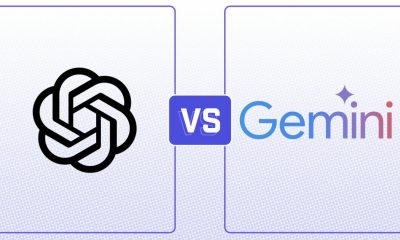Entertainment
Amazon’s ‘Four More Shots Please’ is engrossing despite its faults

I have a confession: I’ve been in a TV slump.
We’ve all been there – with so much media to consume, it’s impossible to keep up, and sometimes – even when it’s literally your job, ahem – analysis paralysis sets in and it’s impossible to summon the motivation or commitment required for a new binge.
Well, to be clear, I was in a slump. And then I started Amazon’s Four More Shots Please and let myself fall in headfirst. A show about four female friends navigating adulthood isn’t new by any stretch – but it’s never been done in Mumbai with an Indian cast, and I couldn’t tear myself away.
Four More Shots Please is the story of four besties; media boss Damini (Sayani Gupta), working mom Anjana (Kirti Kulhari), fitness instructor Umang (Gurbani), and the baby of the group Siddhi (Maanvi Gagroo). The series is primarily in English, with Hindi, Punjabi, and Marathi peppered in (also everything has captions now, you’ll be fine).
Four More Shots Please, written by Devika Bhagat and Ishita Moitra and directed by Anu Menon, is part of Bollywood’s growing feminist film wave, and the first piece of content in this genre to stream globally and not have to answer to India’s notorious film censorship board. India’s Netflix and Amazon series have found international audiences and critical acclaim, offering a fruitful playground for complex storytelling.
Naturally, 10 episodes does what a feature cannot. The show’s de facto predecessor is the 2018 film , which drew from similar archetypes but didn’t have the luxury of time to dive deeper into subplots and add extra nuance. We spend equal time with Damini’s demanding job and OCD, Siddhi’s socialite helicopter mom, and Anjana struggling to move on from her divorce.
This narrative freedom is most apparent in Umang, who moved to Mumbai from the villages of Punjab to escape marital pressure and live honestly as a bisexual woman. She may be the show’s least loquacious lead, but her identity is honest and consistent – not a trendy accessory worn at the show’s convenience. Four More Shots happened to hit Amazon the week before Bollywood’s first mainstream queer movie, and the thrill of seeing these stories told with South Asian characters cannot be overstated.
It’s such a small act of resistance, but seeing Indian people kiss and curse and drink is novel, because we’ve been doing it out here the whole time.
Growing up with Indian cinema, I always got to see myself on screen in some capacity. Hollywood’s increased diversity and Bollywood’s trailblazing have showcased even more authentic versions of myself. It’s such a small act of resistance, but seeing Indian people kiss and curse and drink is novel, because we’ve been doing it out here the whole time.
I have one chief critique of Four More Shots Please which encompasses most of its issues (two if you count the fact that they really do drink a lot – but as a low-tolerance lightweight, I’ll hold my peace): It’s trying too hard. As with Veere, Four More Shots piles on the cursing and sex to the point where other elements feel suffocated – but that’s also a necessary measure when one considers how repressed most Indian media has been until today. Maybe if we overshoot our target (e.g. protagonists shouting “VAGINA” at a public pier), we’ll eventually land where need to.
Trying too hard also means appealing to Western feminism, which is very much alive in India’s urban hubs but not even a blip in the country’s vast rural population. The leads of Four More Shots are objectively privileged, as are most TV heroes – the difference is that they have Western-level privilege in a developing country. In India, the gap between haves and have nots might as well be light years.
This discrepancy was sharply highlighted when I paused between episodes to watch Period. End of Sentence, the Oscar-winning documentary short about women in India’s villages who don’t have access to regular menstruation products. As a viewer, how does one reconcile these polarized versions of Indian femininity? Why should I watch these characters literally go to Goan Coachella when I can watch the same thing on Insecure?

The ladies of ‘Four More Shots Please’ do not have time for bull shit.
If I’m seeing Indian characters on TV, I want them to be Indian, and that extends beyond accents and skin color (incidentally, all four leads are extremely light-skinned). I want to hear culturally specific or mixed music, not pop covers that seem tailor-made for The CW. These protagonists seem intent on shedding not only gender constraints, but cultural ones – and the concerning question here is whether or not we can separate the two.
All of this was present in my mind from episode 1 through to the finale, yet I could not stop watching Four More Shots Please. It reminded me how I devoured every episode and season of Girls on HBO, even at its most abrasive. I don’t know that I would be friends with any of these characters, but I could watch them live their lives for hours (reader, I did!).
The beauty of a show like Four More Shots or a movie like Veere Di Wedding is that it’s only the beginning. These texts carry the enormous burden of being bold enough to bet on women, and the payoff of seeing even a few of these stories told is monumental. Another shot, please. I’ll be staying at this bar.
Four More Shots Please is now streaming on Amazon Prime.

-

 Entertainment7 days ago
Entertainment7 days agoNASA discovered bacteria that wouldn’t die. Now it’s boosting sunscreen.
-

 Business6 days ago
Business6 days agoTesla drops prices, Meta confirms Llama 3 release, and Apple allows emulators in the App Store
-

 Business5 days ago
Business5 days agoTechCrunch Mobility: Cruise robotaxis return and Ford’s BlueCruise comes under scrutiny
-

 Entertainment6 days ago
Entertainment6 days ago‘The Sympathizer’ review: Park Chan-wook’s Vietnam War spy thriller is TV magic
-

 Business4 days ago
Business4 days agoTesla layoffs hit high performers, some departments slashed, sources say
-

 Business5 days ago
Business5 days agoMeta to close Threads in Turkey to comply with injunction prohibiting data-sharing with Instagram
-

 Entertainment4 days ago
Entertainment4 days agoChatGPT vs. Gemini: Which AI chatbot won our 5-round match?
-

 Business3 days ago
Business3 days agoFormer top SpaceX exec Tom Ochinero sets up new VC firm, filings reveal





















